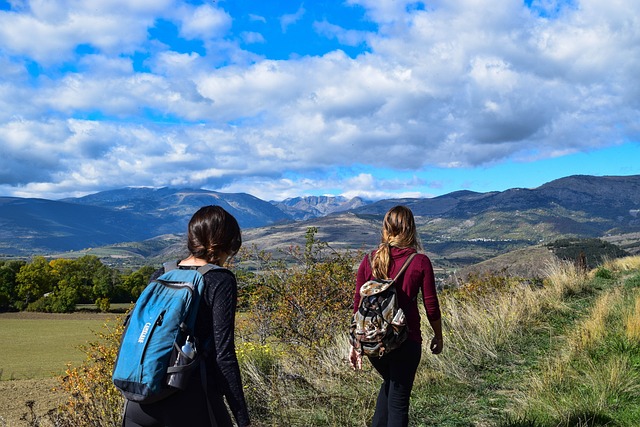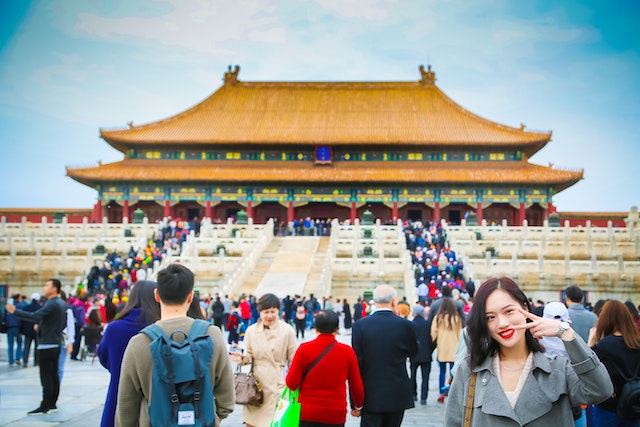The term “tourist” is commonly used to refer to people who travel for leisure, business, or any other reason, and is part of a fast-expanding industry all over the world. But what does it mean to be a “tourist,” and how has the definition changed through time? In this post, we’ll examine what does tourist mean, the many kinds of tourists, and the ways in which tourism affects local economies and communities.
What Is a Tourist?
A tourist is, at its most basic, a person who goes on a trip to a different location from their regular one. U.N. World Tourism Organization (UNWTO) definition: “a person who travels to a place outside their typical surroundings for less than a year, for any principal purpose (leisure, business, etc.), and other than to be employed by a resident entity in the country or place visited.”
The term “tourist” as used here encompasses both domestic (those who travel within their own country) and foreign (those who travel to other countries) (those who travel to another country). It also encompasses a broad spectrum of reasons to travel, from pleasure and education to business and commerce.
Types of Tourists
Many different sorts of tourists can be distinguished according to factors like age, gender, motivation for travel, the preferred mode of transportation, and more. The following are some of the most prevalent types of tourists:
Leisure Tourists

To put it simply, leisure travelers are those who take trips for the purpose of having fun or otherwise relieving stress. They frequently go to places frequented by vacationers, such as beaches, amusement parks, museums, and historic buildings. The vast majority of travel dollars are spent on what is widely recognized as the most prevalent kind of tourism worldwide: leisure travel.
Business Tourists

Convention goers, businessmen, and businesswomen all fall into the category of “business tourists,” those who travel for professional reasons. They frequently book hotel rooms or other nearby lodgings in order to be close to the action, and they may even prolong their trip to take part in other, non-work-related pursuits.
Adventure Tourists

Adventure travelers are those that travel in search of extraordinary experiences, be they hiking, climbing, or other extreme sports. They frequently visit unusual or far-flung locales that may need unique skillsets or gear.
Cultural Tourists
Cultural tourists are those who visit a foreign country in order to immerse themselves in its artistic and historical traditions. They might go to art exhibits, historical landmarks, or cultural activities like concerts and plays.
Eco-tourists
The term “eco-tourist” refers to travelers who make an effort to reduce their negative effects on the natural world and promote environmentally responsible travel. They favor eco-friendly lodgings, like outdoor activities, and give to conservation causes.
Impact of Tourism
The development of sustainable tourism strategies that maximize benefits while minimizing negative consequences requires an understanding of the range of possible affects that tourism can have on destinations and communities. Some significant effects of tourism are as follows.
Positive Impacts of Tourism:
Economic Development
The ability of tourism to spur economic growth and development is one of the industry’s greatest strengths. Jobs, tax revenue, and a thriving economy are all possible results of a healthy tourism industry. This may be especially useful in less-urbanized or less-developed regions, where employment possibilities may be few.
Infrastructure Development
Tourism can also stimulate growth in sectors like transportation, communications, and the utility industries. Having easier access to basic necessities can greatly enhance the standard of living in the area.
Cultural Preservation

By providing a setting for cultural expression and learning, tourism can assist in the maintenance and development of indigenous societies. In places where ancient customs and practices are in danger of being replaced by the influences of modernity and globalization, this might be of paramount importance.
Environmental Conservation
The economic value that tourism generates for natural resources like parks, wildlife, and ecosystems can serve as an incentive to protect and preserve them. Using these measures can reduce the risk of degradation and overuse of these resources.
Negative Impacts of Tourism:
Environmental Degradation
Pollution, habitat loss, and depletion of natural resources are just some of the ways that tourism may harm the planet. In regions with already-fragile ecosystems or where natural resources are few, this can be a major issue.
Overcrowding
The increased demand for services like water, food, and waste management that accompany tourism can also lead to congestion. The quality of life for both locals and visitors could suffer as a result.
Cultural Erosion
Through its tendency to encourage standardization and homogenization of experiences, tourism can help in the deterioration of native cultures and customs. The result may be a decline in identifying features unique to individual cultures.
Economic Leakage
Economic leakage occurs when a sizable chunk of the money made from tourists departs the country, typically to large corporations like foreign hotel chains or tour operators. Because of this, the economic benefits that tourism may bring to a region may be diminished.
Social and Behavioral Impacts
Crime, prostitution, and substance addiction are just a few of the social and behavioral effects of tourism. Particularly in places that see a lot of tourists, these effects might be felt to a greater degree.
Sustainable Tourism
There is a growing recognition of the need for sustainable tourism methods that reduce the negative effects of tourism while maximizing its beneficial effects. According to the UNWTO, sustainable tourism is defined as “tourism that takes full account of its current and future economic, social, and environmental implications, addressing the requirements of visitors, the industry, the environment, and host communities.”
Some examples of sustainable tourism practices are the use of energy-efficient methods and renewable energy sources to reduce carbon emissions and other pollutants, the conservation of natural resources, the employment of locals, the purchase of locally produced goods and services, the funding of community development projects, and the involvement of tourists in these activities through education and awareness-raising campaigns.
Conclusion
As we’ve seen, the term “tourist” refers to more than just a person who visits different locations for the purpose of sightseeing. It’s a mentality that allows us to welcome the unexpected and stretch ourselves. We’re all tourists in some sense, whether we’re experiencing a new culture, sampling a new cuisine, or just roaming the streets of a distant city.
Therefore, let’s channel our inner traveler and hit the road with an open mind and an appreciation for new cultures. Let us take in all that life has to offer, from distant lands to our own backyards, with eager eyes and eager hearts, and revel in the thrill of discovery.

